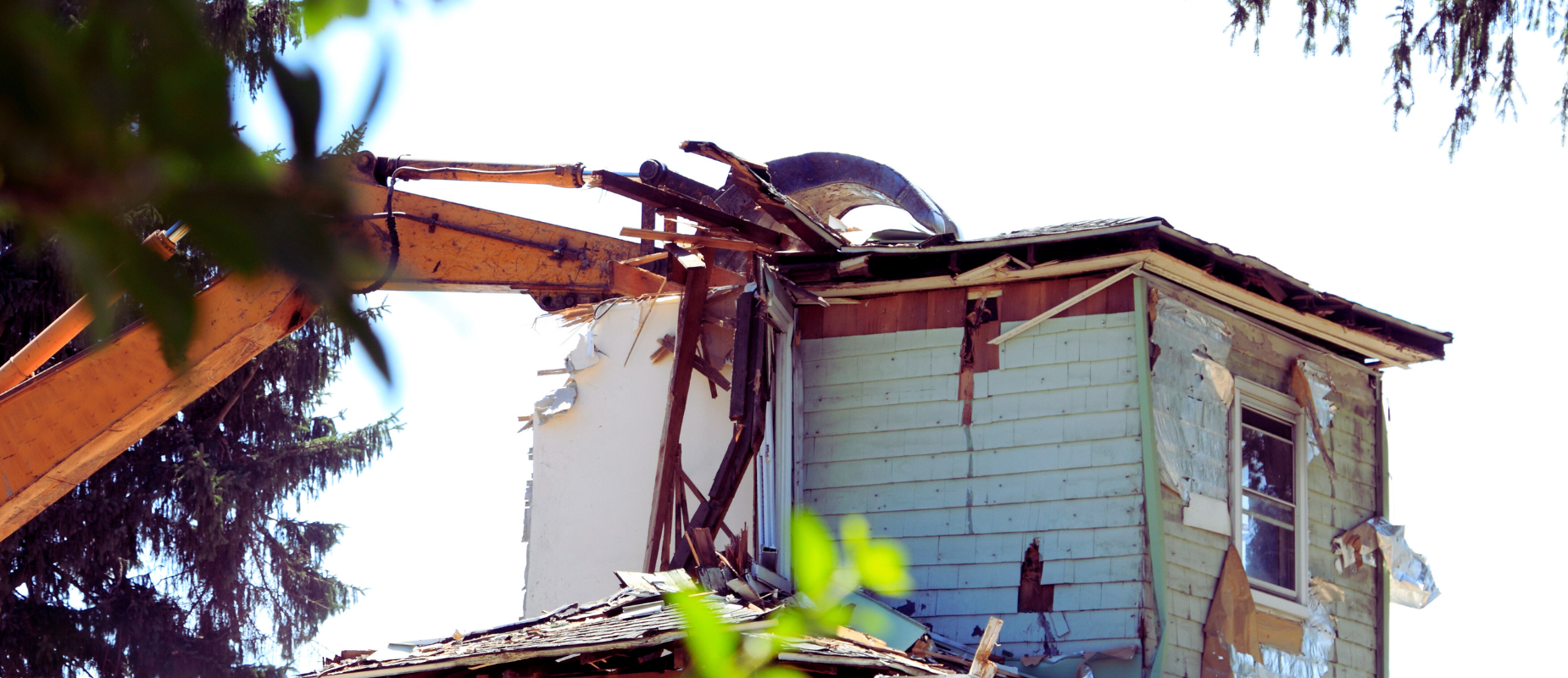
Can You Demolish a House with a Mortgage?
What Are the Legal Implications?
It can be hard to officially tear down a house that still has a mortgage on it. People who own homes need to be very clear about what their mortgage deal says, especially when making changes to the home. Read these terms carefully before moving forward, as they may change your plans for destruction.
Understanding Mortgage Agreement Terms
The mortgage agreement details the duties of both the borrower and lender. Major changes like demolition usually need the lender’s permission. Not getting approval might lead to legal issues or breaking the contract. Homeowners should talk to their lenders about tearing down their houses to understand any potential impacts on the mortgage.
The Role of the Lender in Demolition Decisions
The buildings that lenders fund are investments for the lenders. If homeowners want to tear down a mortgaged home, they need the lender’s permission first. The lender will examine how this impacts the loan security and property value. So, homeowners must get permission from their lenders to tear down their homes and follow all legal rules.
How Does Demolition Affect Property Value and Equity?
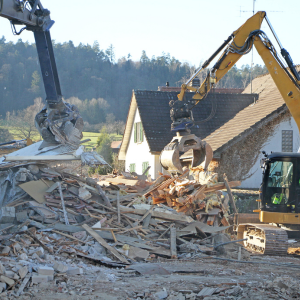
Demolishing a home can greatly change its value and the homeowner’s equity. Understanding these changes is key to smart financial and real estate planning.
Evaluating Property Worth Post-Demolition
After demolition, the property must be revalued. This involves appraisals to find out its market value. Factors include land desirability, location, and future development possibilities. Homeowners should be ready for a possible drop in property value after demolition.
Impact on Homeowner’s Equity and Financial Planning
Equity is the homeowner’s financial interest in the property. Tearing down a house may lower equity, especially if the land is worth less afterward. This can change a homeowner’s financial plans, so careful planning about how demolition affects equity and investments is needed. Consulting with financial advisors can help manage these changes.
Homeowners considering demolishing a mortgaged property must understand the legal and financial aspects. Before proceeding, it is important to communicate openly with lenders, assess financial situations, and consider the effects on property value and equity.
Steps Before Demolishing a Mortgaged Property
What Preparations Are Necessary?
Careful planning is key before demolishing a mortgaged property. Start by reaching out to your mortgage lender to discuss the demolition plans. You must secure approvals and understand any conditions they set. Obtaining necessary demolition permits is also essential, as these permits ensure you follow local regulations.
Review the legal steps in the demolition process, including checking municipal regulations and zoning laws related to property demolition. Thorough planning will help prevent legal issues and ensure a smooth project execution.
Which Experts Should Be Consulted?
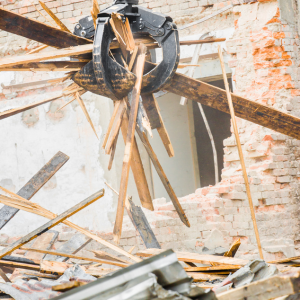
It’s important to consult experts before demolishing a mortgaged property. Begin by hiring licensed demolition contractors with the expertise needed for such projects. Real estate advisors can offer insights into market trends and the potential benefits of tearing down the property.
Legal advisors are crucial for navigating the legal complexities and ensuring compliance with the law. Additionally, consulting a reputable demolition company for site inspections and evaluations is beneficial. Their expertise can help identify potential challenges and provide a solid plan for safe demolition.
Relying on these professionals will support an informed approach and reduce risks associated with property demolition.
Can You Refinance or Modify Your Mortgage?

Refinancing or modifying your mortgage can help you manage your financial situation better. Refinancing means replacing your existing mortgage with a new loan, often to get a lower interest rate or a different loan term. This might be a good choice if you have home equity or the market offers lower rates. Talk to a mortgage lender to see if refinancing is right for you.
Mortgage modification changes the terms of your current loan. This could involve altering the interest rate or extending the loan term. People in financial hardship often consider this to avoid foreclosure. Contact your lender to see if mortgage modification is an option if refinancing doesn’t work.
If you are demolishing or tearing down your home, refinancing or modifying your mortgage can be a unique challenge. Financing a teardown in Texas requires understanding local regulations and lender needs. Speak with experts who know Texas laws and financing to guide you through these processes.
Are There Specific Loans Available?
Loan programs are designed for demolishing and rebuilding. These programs allow you to finance both the demolition and new construction. Knowing the loan requirements is important when considering these options.

Mortgage loans, such as Texas demolish and rebuild, provide the funds needed for these projects. Typically, loan requirements for teardown properties include a project plan, cost estimates, and a budget. Work with your mortgage lender to meet all the criteria and qualify for the loan you want.
Tear down and rebuild mortgage options may combine demolition and construction costs into one loan. Different lenders have different terms, so research and compare them carefully.
Getting advice from real estate and finance professionals familiar with your local market can be beneficial. Companies like We Buy Houses For Cash Dallas can offer insights into local property trends, helping you make informed decisions.
How to Manage Costs and Risks in Demolition
What Are the Typical Costs Involved?
Planning for a house demolition requires an understanding of associated costs. Various elements influence demolition costs, including location, property size, and project type. Common expenses include hiring heavy equipment, securing demolition permits, and arranging waste removal.
The cost of demolishing a house in Texas varies. Urban areas like Dallas often have higher costs due to stricter regulations and disposal fees. These factors are important to consider when creating a budget for your demolition project.
How Can Risks Be Minimized?
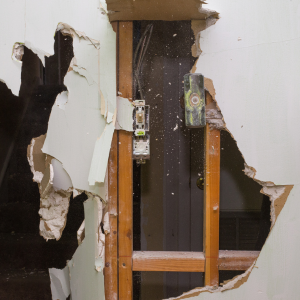
Reducing risks in a demolition project requires careful planning within safety and legal guidelines. Obtaining adequate insurance is crucial as it protects against liabilities and unforeseen incidents. Making informed choices about insurance for demolition projects ensures full protection.
Understanding Texas environmental regulations for demolition is vital to staying compliant with state laws. This includes safely managing hazardous materials to avoid legal problems.
Legal requirements for demolishing a house in Texas also involve getting correct permits and following zoning ordinances. Contacting local authorities before starting a project helps clarify applicable regulations and reduces potential risks.
By following these steps, you can effectively manage costs and minimize risks in house demolition projects. Our team at We Buy Houses For Cash Dallas is here to provide expert advice tailored to your needs.
What Are the Post-Demolition Considerations?
How to Plan for Rebuilding?
Planning to rebuild after demolition involves several key steps. Start with design plans that capture both the practical and visual aspects of the new building. During this stage, consider what the property will be used for, such as residential or commercial real estate. This helps lay the groundwork for everything that follows.
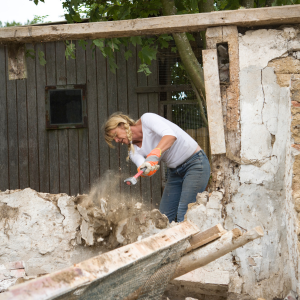
Next, set a realistic budget. Include all costs, such as construction, permits, and contractor fees. Adding a buffer for unexpected expenses is wise to avoid financial pressure later. Hiring a reliable contractor with experience in similar projects can greatly improve the construction process. Make sure they understand your project’s scope and budget.
Begin arranging for the necessary permits. To avoid legal issues, follow local zoning laws and building codes. Contact local authorities early to learn about requirements and any restrictions on your plans. This prevents delays and extra costs due to non-compliance.
What Are the Tax and Legal Outcomes?
Knowing the tax implications and legal outcomes after demolition is vital. The demolition might change your property taxes, affecting your financial planning. Consult a tax expert to see how these changes impact you.
Follow zoning laws carefully, as they dictate what constructions are allowed. Zoning affects design plans and possibly even the building materials. Check that your post-demolition plans meet zoning requirements to avoid costly changes later.
Building codes must be strictly followed for safety and durability. Compliance is legally required and ensures your property’s longevity and safety.
Talk with your mortgage lender about any effects demolition and rebuilding might have on existing agreements. Lenders may have conditions or offer helpful advice for your rebuilding efforts.
Addressing these issues thoroughly sets a strong base for a successful rebuilding effort.
Read on to learn how to sell a house in Texas. The tips and guidelines are applicable statewide, including cities like Dallas, El Paso, Houston, Austin, San Antonio, Fort Worth, and nearby regions. For personalized assistance, Contact Us at (469) 765-3669.

